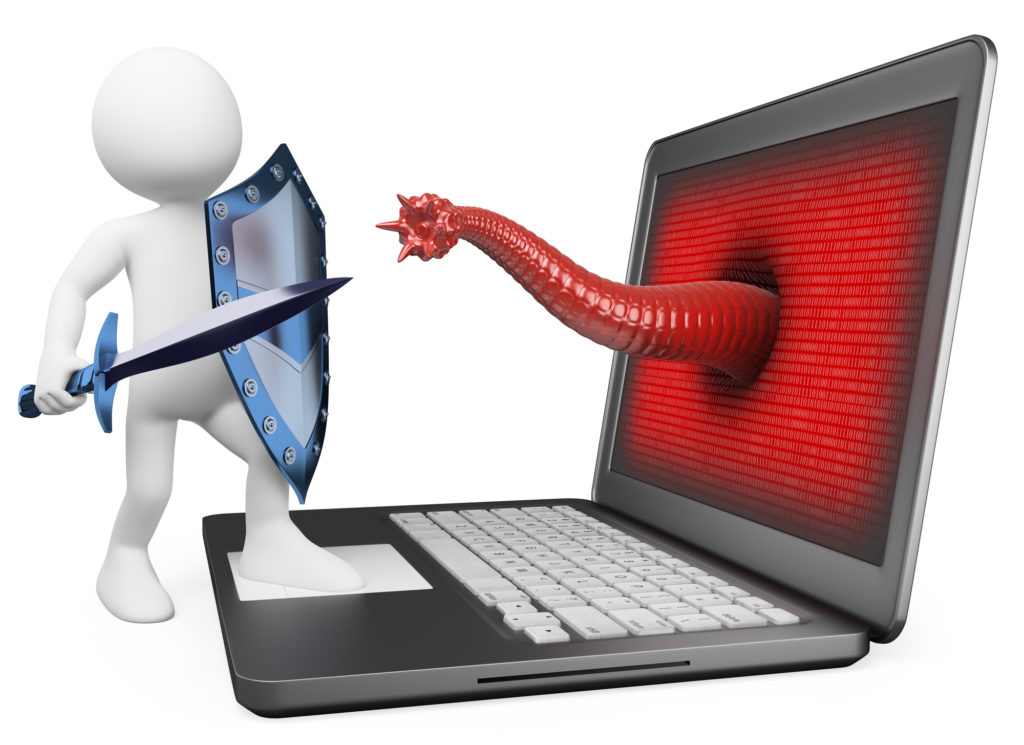Malware infections are one of the most common types of computer complaints, with thousands of people impacted by them each day. These malicious programs take advantage of any weaknesses in a computer’s protection to install themselves and can be very difficult to completely remove. The best way to avoid computer damage from a malware program is not to get infected in the first place. Here are five easy ways to protect your computer from malware.
1: Block malicious ads
Many advertisements that you see on website sidebars or headers are harmless, but some ads run scripts that will redirect your web browser to a malicious site or attempt to install malware on your computer. The reason that websites run advertisements is to generate revenue, so many sites will ask you to turn off any adblocking extensions you have installed. This is a well-meaning request, but individual websites often do not have a lot of control over which ads appear on their pages. It is safest to block ads entirely or back up your adblocker with a trusted antivirus program.
2: Routinely scan your computer
It’s not always obvious when malware has gotten into your computer, so it’s important to have an antivirus program installed that will scan your computer for threats on a regular basis. There are many reputable programs to choose from, so you can pick one that is best suited for your browsing habits. You can configure an antivirus program to scan your computer at regular intervals while you are not using it or manually start a scan if you believe your computer has been exposed to a threat. If you keep your antivirus software up to date, it will help you stay ahead of the latest malware threats.
3: Avoid suspicious links
A common tactic that malware programs use to get access to a computer is to send the user a message by email or other message program that contains a link to a malicious site. You may have received this kind of message on Skype or Facebook from somebody on your friend’s list. This does not mean that your friend is trying to hack your computer, their account has just been temporarily hijacked as a means to spread the malware. Alert your friend to change their passwords, and don’t click the link!
4: Be cautious with downloads
If you are going to download a program to your computer, double check the source. There are websites that masquerade as legitimate sites but host downloads for corrupt versions of the product being offered. Infected software may be obviously broken from the start, or it may behave normally to give the illusion that what you downloaded was the correct program.
5: Keep your OS and software updated
Computers that are not up to date with the newest versions of their antivirus software are at risk. Malware programs are constantly being created to get around scans and browser protection, so it is vital to keep your software databases current. With the most recent version downloaded, your anti-malware program can catch newer malware and keep it away from your files. Keeping a current OS is just as vital because each new update to an operating system closes vulnerabilities that malware could otherwise exploit.
In the event that your computer becomes infected with malware despite your precautions, make sure you have it removed by experts. Malware hides itself deep within computers, and can be difficult to locate. If someone who is not well versed in computer repair attempts to remove the program, components of it could be left behind on the computer and impact function. Computer technicians here at Magnify247.com can remotely access your computer and safely remove malware, walk you through installing or updating antivirus and adblocking software, and help you keep your computer’s OS up to date.







